Teachers play a pivotal role in shaping the minds of future generations, equipping them with knowledge and inspiring them to make a positive impact on the world. In an effort to enhance their own understanding of environmental issues, a group of passionate educators recently participated in a ClimeTime professional development workshop focused on the vital role of trees as carbon sinks, the important role forests play in the climate crisis and explored the principles of ecological forestry. These teachers discovered the potential for forests to mitigate climate change and foster sustainable ecosystems.
It’s difficult to see hope and resilience when glaciers are melting, salmon populations are dwindling and sea levels are rising. But there are efforts to make our planet more resilient all across the planet and right in our own backyards. And that is a reason for hope. Hope and Resilience, Land and Forestry, a professional development workshop in Whatcom County, kicked off with an eye-opening session that revealed the remarkable ability of trees to store carbon dioxide, a greenhouse gas responsible for climate change. Workshop leaders reminded educators that trees act as natural carbon sinks, absorbing CO2 from the atmosphere through photosynthesis and storing it within their trunks, branches, and leaves. The intricate science behind this process deepened their appreciation for the essential role forests play in regulating Earth’s climate.
Immersing themselves in a real-world setting, the teachers ventured to the Stewart Mountain Community Forest — a well-managed forest reserve renowned for its commitment to ecological forestry. Alexander Harris, Land & Water Policy Manager at RE Sources greeted the educators at the community forests and introduced them to the principles of ecological forest management. As they hiked to the South Fork of the Nooksack River, teachers marveled at the connection between forests and salmon. They witnessed firsthand the incredible biodiversity that thrives in a healthy ecosystem.
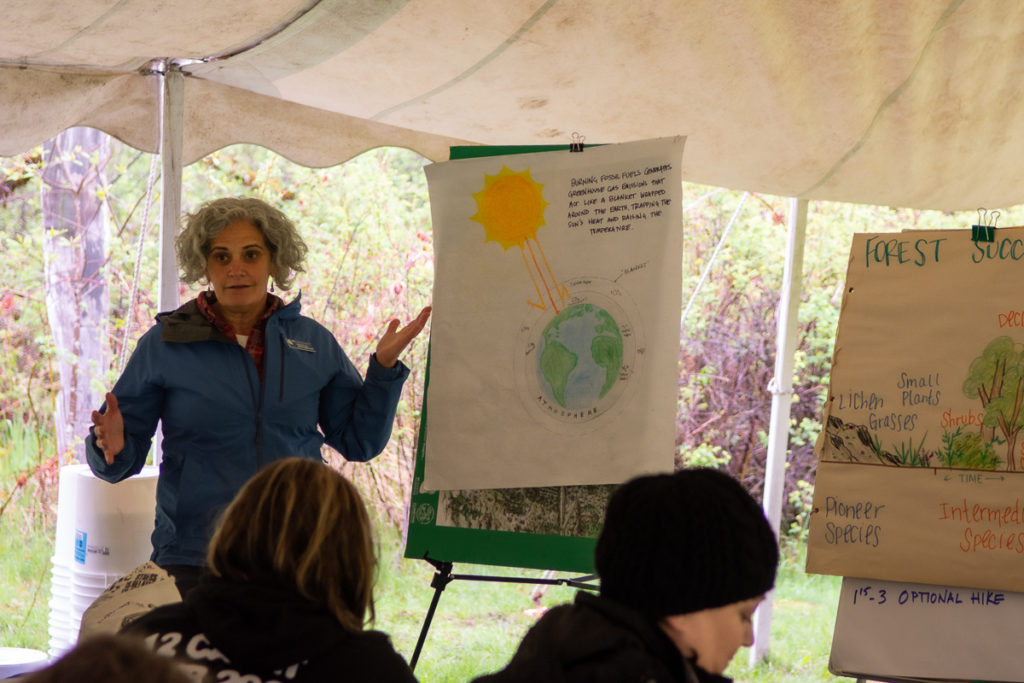
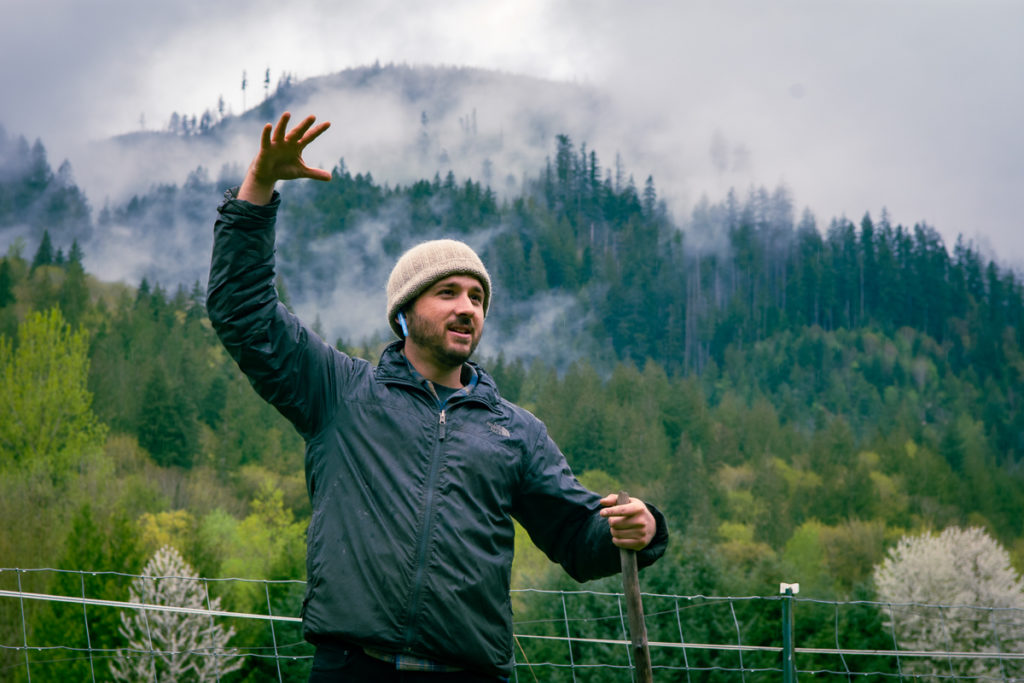
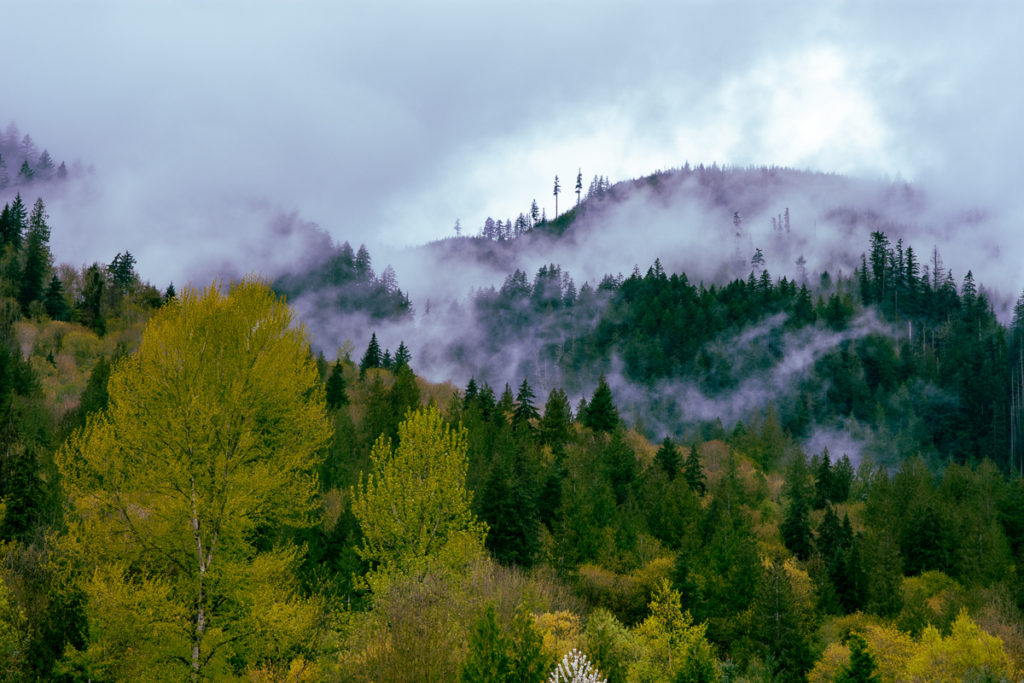
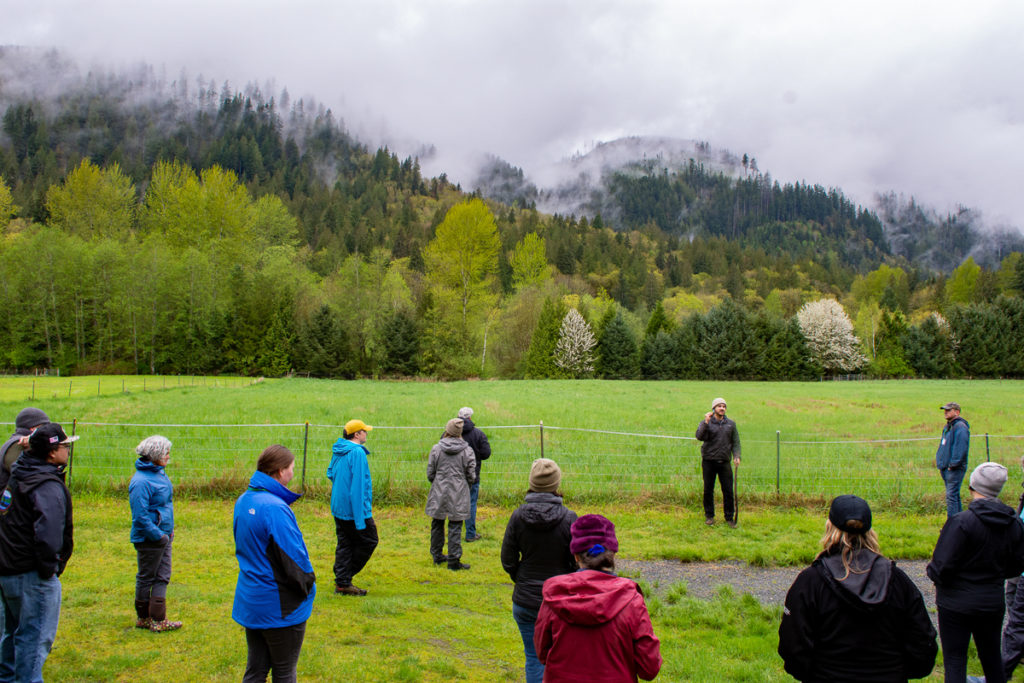
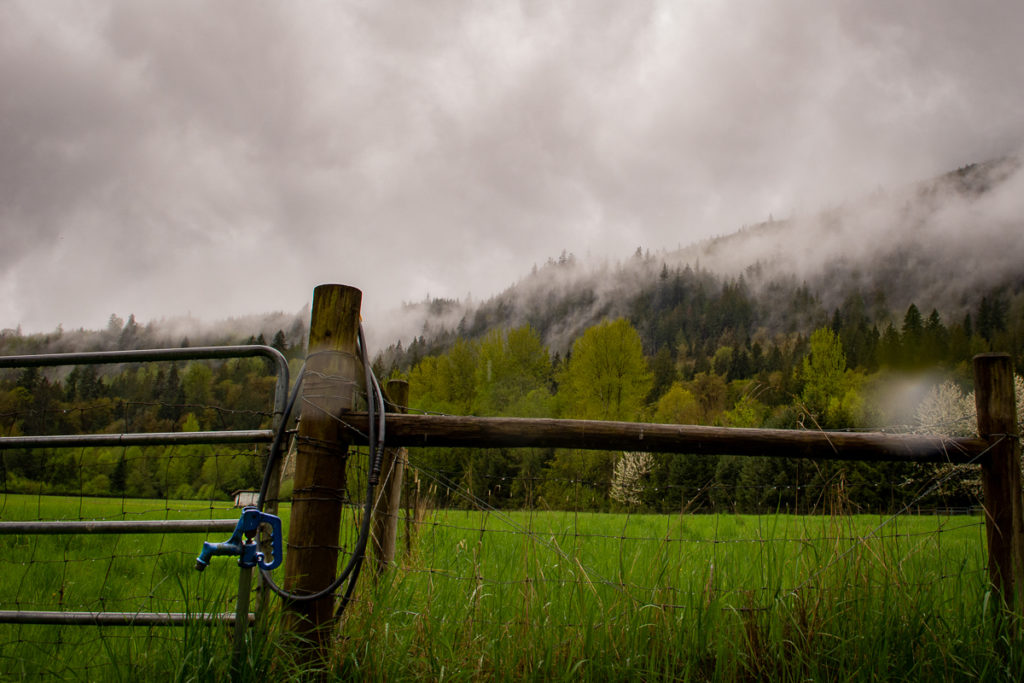
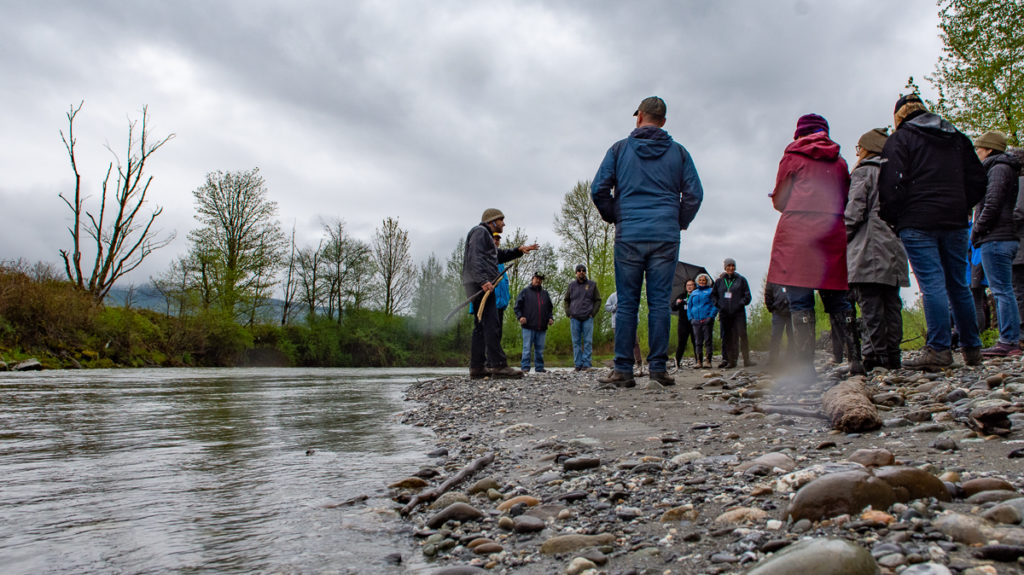
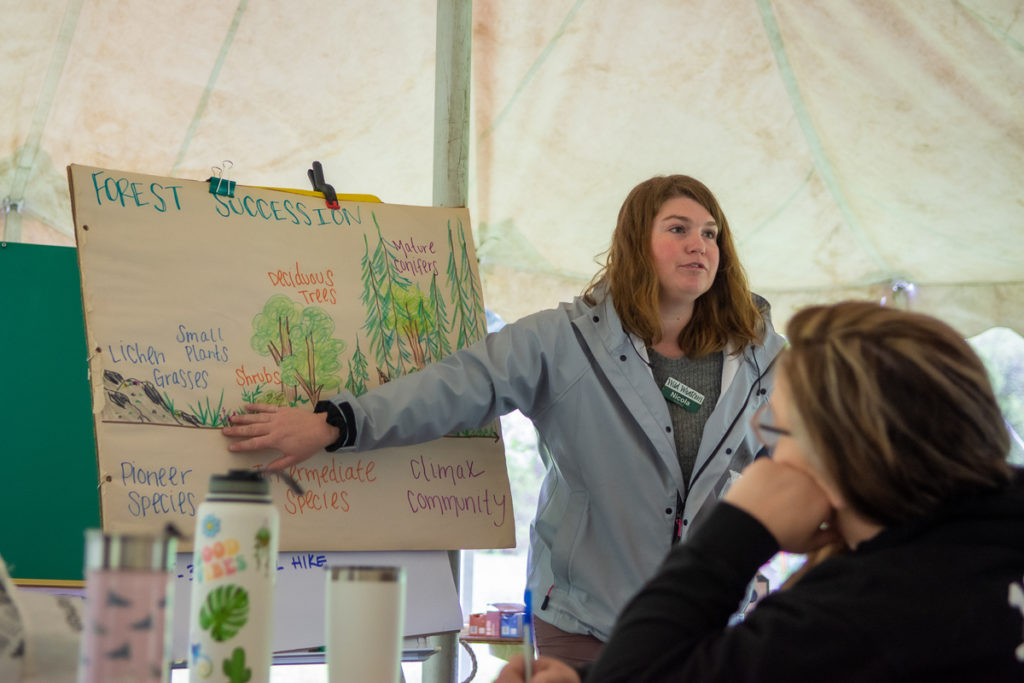
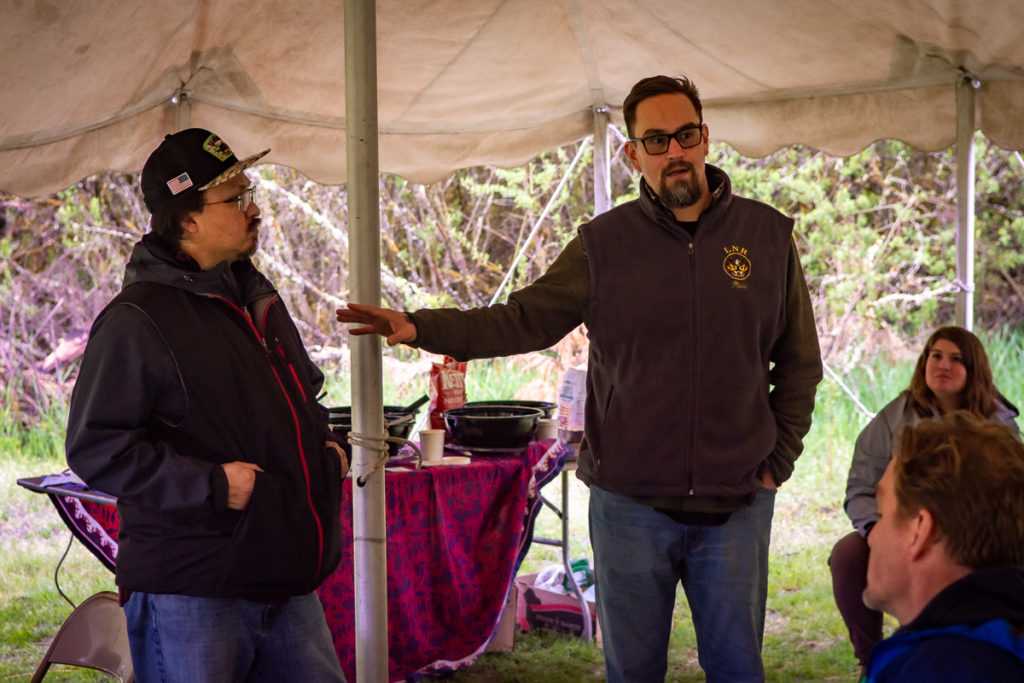
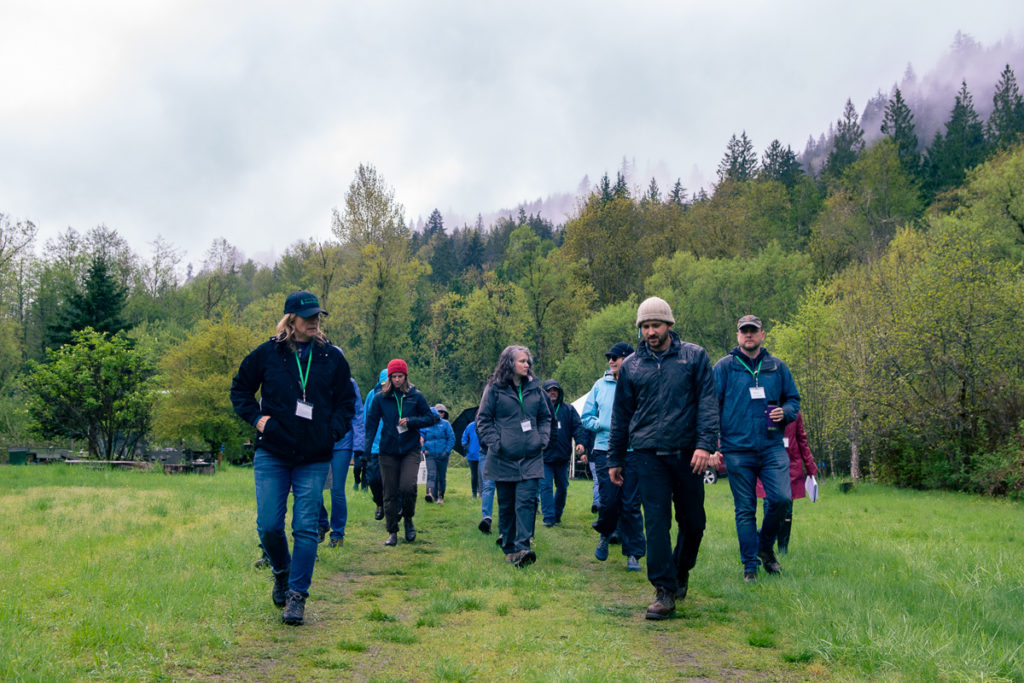
During the tour, the educators learned the core tenets of ecological forestry, which focuses on maintaining the ecological integrity of forests while simultaneously meeting societal needs. They discovered that ecological forestry practices prioritize the preservation of biodiversity, the protection of water resources, and the restoration of forest ecosystems. Tour leaders shed light on the challenges land managers face in balancing timber production with ecological preservation. Additionally, tribal partners Paul Cline of the Lummi Nation and Ryawn Cline, a Nooksack tribal council member, shared the importance of maintaining forests in order to preserve their way of life. The brothers shared stories that were passed down illustrating the abundance of salmon prior to treaties and since time immemorial.
“I feel inspired. There’s so much we can do if we choose to find it. I want to focus on the positive!”
– ClimeTime Hope & Resilience workshop participant
Equipped with newfound knowledge, hope for a resilient future, and an invigorated sense of purpose, the teachers returned to their classrooms, ready to educate and inspire their students. Said one teacher, “I feel inspired. There’s so much we can do if we choose to find it. I want to focus on the positive!” By nurturing an understanding of the intricate connections between trees, carbon storage, and sustainable forest management, these educators aimed to empower their students to become responsible stewards of the environment.
